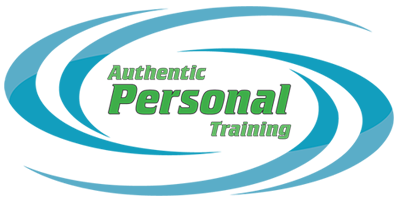Caffeine, we know it and love it, but do we know its health benefits? Caffeine is a drug that increases the activity of the brain and nervous system. When you think of caffeine, you almost instantly think of coffee – which is not surprising as coffee is the second most consumed beverage around the world after water. Caffeine is also found in high amounts naturally in tea and chocolate.
Synthetic sources of caffeine which have become popular in recent years include energy drinks and supplements. By blocking the action of the neurotransmitter adenosine whose primary job is to promote relaxation and sleepiness, all of these sources of caffeine can work to increase alertness and reduce feelings of fatigue.
Read on for some more information on caffeine, how it works and the body’s response.
Caffeine absorption
Caffeine is quickly absorbed in the small intestine with some caffeine absorption occurring in the stomach, 99% which is absorbed in about 45 minutes. The peak level of caffeine in the body occurs 1-2 hours after consumption.
The half-life of coffee, meaning the amount of time is takes for the concentration of a substance to decrease to half the starting dose in the body is 2.5-5 hours.
This can depend on things such as:
- smoking
- genetics
- health status
- pregnancy or
- oral contraceptives.
This is why you may find trouble sleeping if you drink coffee at 3 o’clock or later. Magnesium, calcium, iron and vitamin D and B vitamins may be negatively affected by caffeine intake (absorbed less or body flushes them more quickly).
Health Benefits of caffeine
As a result of caffeine working to increase wakefulness and alertness by blocking adenosine from working correctly, caffeine consumption can lead to increased energy, improved concentration and enhanced mood. Reduced perception of fatigue may be found from taking caffeine which is why it may be beneficial before a workout as you may find you can push yourself for longer than you may have without it.
Coffee stimulates movement of the GI tract in as little as 4 minutes after drinking coffee. Call it a good or bad thing…
Some research has also suggested that regular coffee drinkers may have a lower-than-average risk of:
- type 2 diabetes
- Parkinsons disease
- bowel cancer
- Alzheimer’s disease and
- depression.
Risks and Side effects of caffeine
While moderate caffeine consumption (around 300-400mg/day = about 3-4 cups of coffee) is generally considered safe for most healthy adults, excessive caffeine consumption can lead to negative health outcomes. People who consume > 500mg or 5 cups of caffeine a daily, may be susceptible to increased heart rate, insomnia and digestive issues.
People with anxiety only need 10mg of caffeine a day to stimulate symptoms of anxiety and panic attacks. Healthy people with a variation of the gene ADORA2A also have an increased risk of symptoms when consuming normal caffeine amounts. As coffee can be addictive, withdrawal symptoms are often exacerbated when going coffee free.
Pregnant women should drink no more than 200mg of caffeine per day as caffeine and its metabolites can pass freely across the placenta to the unborn. More than 3 cups a day during pregnancy increases the risk of pregnancy loss, low birthweight and first and second trimester pre-term birth.
Ladies at a high risk of osteoporosis should also consider limiting caffeine intake as large amounts of coffee has been shown to increase urinary excretion of calcium. Calcium is especially an important nutrient in postmenopausal women due to the loss of oestrogen and the role it plays in bone formation and prevention of bone breakdown. Those with IBD are also advised to avoid coffee due to GI distress.
Coffee and weight loss
Caffeine found in coffee has many health benefits including increased energy, mood and improved concentration. (Limiting to less than 4 cups / day). Reduced perception of fatigue is also beneficial for those pre-exercise and allows them to work harder in the session. Some studies have also shown a link between moderate coffee drinkers and a lower risk of communicable diseases.
This does NOT mean however you should head to Starbucks and get 3 of their new seasons coffees topped with milk, cream and chocolate sprinkles… People who are on a weight loss journey may think it’s ‘just a cup of coffee’. To not include it into their food diary when really if they are having 4 cups of a full milk coffee with sugar each day they are easily over consuming calories.
We can enjoy coffee at a moderate rate but with no more than 3-4 cups per day. Also opt for black coffee or lower fat milks where you can and try to avoid adding sugar.
Doing this may even prolong your life!
Caffeine in summary
In summary, caffeine, a widely consumed drug found in coffee, tea, and chocolate, blocks adenosine and boosts alertness. Its absorption and half-life vary based on factors like genetics and health status. Caffeine offers benefits like increased energy, better concentration, and potential health advantages, including reduced disease risk.
However, excessive caffeine intake can lead to issues like increased heart rate and insomnia, especially for those with anxiety or specific genetic variations. Pregnant women and those at risk of osteoporosis or GI problems should monitor caffeine. Moderation, choosing lower-calorie coffee options, and reducing sugar intake are key to enjoying caffeine’s benefits without negative consequences.
Want To Learn More?
Since COVID-19 entered our lives, we have aimed to deliver some great weekly information as to how you can remain healthy, productive and in good spirits. This blog post is the latest addition to a growing library of information. Click to read more on our dedicated COVID support blogs.
Over the last 7 years Authentic Personal Training has established itself as a leading health and fitness studio on the Lower North Shore. We are incredibly proud to announce that we have been voted The Best Fitness Business on The North Shore for 2019.
Join us on our Facebook page:
https://www.facebook.com/authenticpersonaltraining/
To book a complimentary Personal Training Session with one of Sydney’s most experienced Personal Trainers, simply fill out the form below



